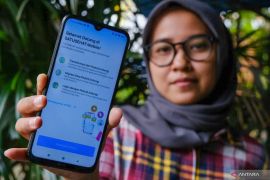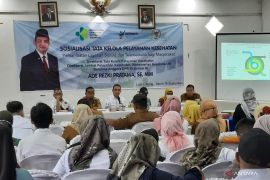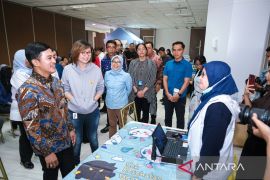According to The Ministry's Chief Digital Transformation Officer (DTO), Setiaji, the plan is expected to serve as an effective measure to monitor public health, as the number of smartwatch users continues to increase.
"Today, the health data could not only be obtained from hospitals or health laboratories, but we can also integrate (the health data) through wearable devices. We will later designate a standard that would be used for health monitoring," Setiaji stated at a press conference on Friday (Jun 10).
He confirmed that the ministry is currently holding a trial to utilize the smartwatch technology to monitor the health conditions of Indonesian Hajj pilgrims departing for Saudi Arabia this year.
The official pointed out that some three thousand pilgrims out of the 11,267 that departed on the first flight batches from the Jakarta embarkation point alone had high health risks.
During the trial, Hajj pilgrims, with a high health risk, are given a wristband that can monitor health conditions and is embedded with the Hajj service application, TeleJamaah, he explained.
While the wristband constantly monitors vital signs, such as heart rate and saturation level, the embedded application will transmit the health data to Hajj officers authorized to monitor the pilgrims, Setiaji explained.
The data integration will allow officers to promptly assist pilgrims with abnormal health conditions detected by the device, he stated.
It is planned to connect the data from wearable devices to a system called Indonesia Health Services, currently under development and is under the beta testing stage, he added.
"We will release (the system) in early July. We hope the wearable devices would be connected to the Indonesia Health Services System. Hence, we could enhance our healthcare service through autodetection input and increase the life quality of Indonesians," Setiaji remarked. (INE)
EDITED BY INE
Translator: Livia Kristianti, Nabil Ihsan
Editor: Agus Setiawan
Copyright © ANTARA 2022












